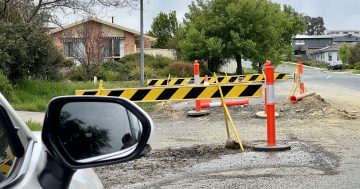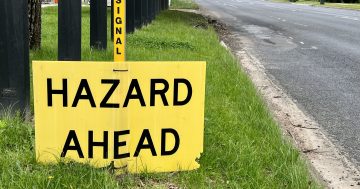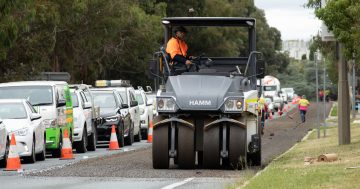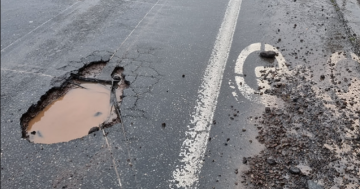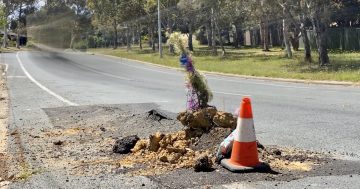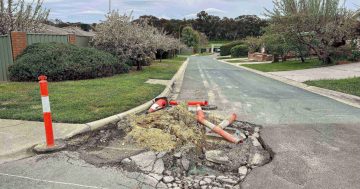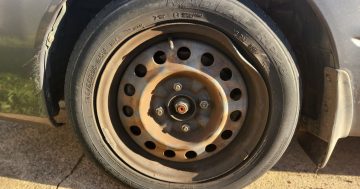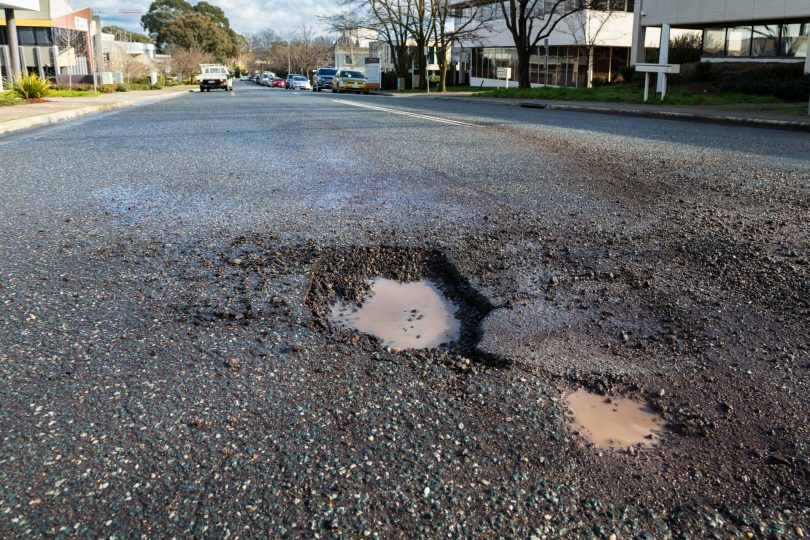
A pothole duo on Napier Close in Deakin. Photo: Michelle Kroll.
Several of the ACT’s arterial roads are set for a revamp over summer with almost a million square metres of fresh tarmac to be laid – but it won’t be your ordinary tarmac.
The seventh wettest winter on record has spelt havoc for roads. Rainwater seeps underneath the surface leaving potholes, cracks, dips, lumps, and disgruntled motorists in its wake.
Over the warmer months, these issues will be picked up by cameras mounted to ACT Government vehicles and then smothered with a new material made from recycled plastic, glass and printer cartridges.
Major roads planned for renewal include the Monaro Highway, Tuggeranong Parkway, Long Gully Road, Ginninderra Drive, College Street, Mirrabei Drive, Mawson Drive and Cooyong Street in the city.
All up, 925,000 square metres of road will be fixed at a cost of $19.5 million.
Road resurfacing treatments include road resealing, asphalt resurfacing and microsurfacing, which helps to waterproof the road and stop the formation of potholes, improve the skid resistance of the road surface, and fill cracks in the pavement.
“These works follow our record program of road repairs which has fixed more than 6000 potholes and delivered more than 11,000 square metres of hot asphalt repairs in the last financial year,” said Minister for Transport and City Services Chris Steel.
In general, the service life of a highly trafficked road is more than 10 years while residential streets often deliver 25 to 30 years of service. Due to the wet weather, however, almost four times as many repairs were undertaken this year compared with previous years, and has been supported with a rise in funding.
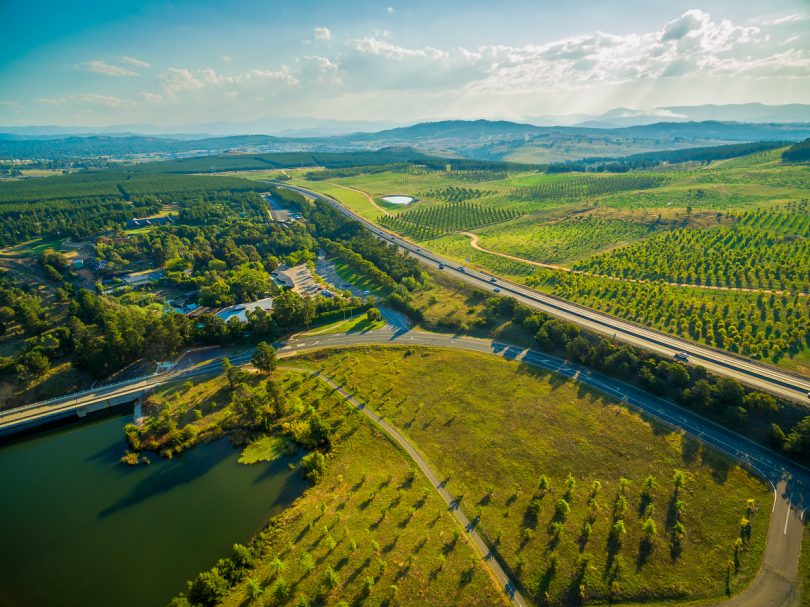
Aerial view of Tuggeranong Parkway passing near National Arboretum in Canberra. Photo: File.
The new program works will be undertaken using local road contractors and asphalt manufacturers. Chiefly, the new type of tarmac is produced by Downer in Hume.
Called ‘Reconophalt’, it is the first road surfacing material in Australia to contain recycled content derived from waste streams like used printer cartridges, soft plastics and glass.
As part of the resurfacing program, the ACT Government is also undertaking a trial of innovative new defect-detection technology with the start-up Frontline Data Systems.
Cameras attached to vehicles will scan and automatically photograph road surfaces, with the artificial intelligence software identifying and classifying areas in need of repair.
Frontline Data Systems Director of Operations, Jonathon Stapels said the system will detect, classify, assess and geo-locate potholes, cracks and other hazardous defects by analysing footage captured from cars equipped with optical devices driving at normal speeds across some of Canberra’s roads.
Minister Steel hopes the AI technology can improve both the efficiency and accuracy of the ACT’s road maintenance program.
The ACT Government is also undertaking a tender process for the next contractors to collect data on the condition of roads in Canberra which will help determine preventative measures and future road resurfacing priorities.
Road resurfacing will first be undertaken in rural areas on Boboyan Road and Paddys River Road, with the first suburban areas following in Tuggeranong later in November and early December 2021.
Signage will be erected well in advance of road resurfacing and affected residents and businesses will also be advised by letterbox drop at least two days before the start of resealing works on their street.
More information on the road resurfacing program, including daily updates on the streets and suburbs where work is taking place, can be found at cityservices.act.gov.au.











